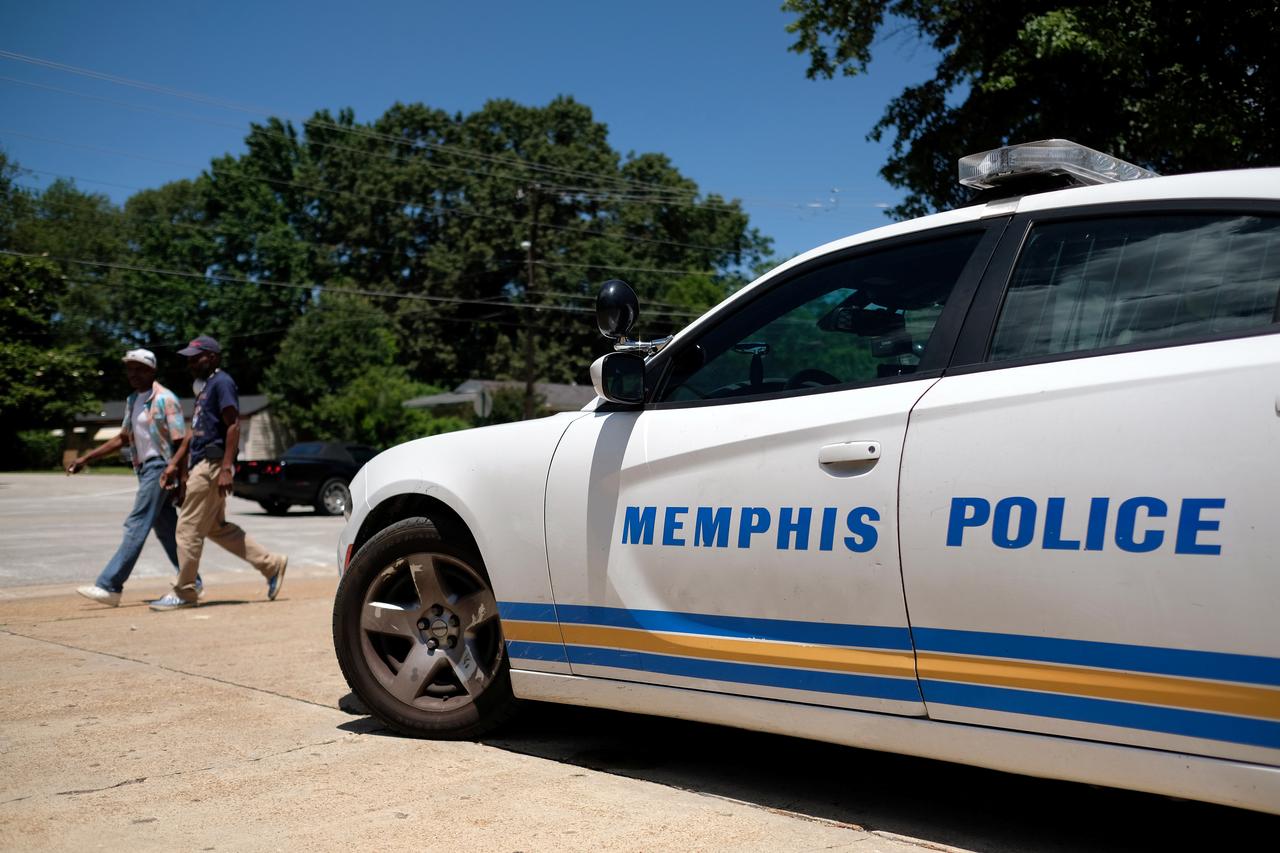Before you go on, close your eyes for a moment of silence for the all-too-short life of Tyre Nichols, to remember a mother in deep pain who lost her son, and to call for reform of policing in Memphis as her son’s legacy.
Most of us have now seen the horrific video of five policemen’s fatal attack of Mr. Nichols, an attack that could easily be mistaken for the most vicious gang beatdown.
The institutions of criminal justice of Memphis are laid bare for the nation to see and many questions remain to be answered. Chief among these is to determine every action that led to the killing of Mr. Nichols and the reason every law enforcement was on the scene.
Meanwhile, Memphis needs to consider the history and rhetoric around policing, to examine the history of police brutality and the outcomes of investigations , and to mobilize behind an agenda for change anchored in accountability and transparency that can be a model for other cities.
In addition to justice for Tyre Nichols, a change agenda should be an overriding and shared goal for going forward. But to know where Memphis is going, it has to consider where it’s been and how it got to the place where policemen felt empowered to kill someone on a city street.
Culture Change Is A Must
Memphis has of course recorded a disturbing increase in violent crime and it is a serious issue, but the response can’t be to create police squads that seem to see themselves as a paramilitary unit that can simply do what it pleases and without any serious risk of discipline and administrative blowback.
It’s not good enough to keep doing the same things. The current agenda has produced a 40% increase in crime and too many police officers hardened to the empathy and humanity they must have for their jobs.
Business as usual was no longer an option in the murder of Tyre Nichols which had the unusual and convincing panoramic evidence from the pole camera.
There is now a consensus that the culture of the Memphis Police Department has to change. It was an opinion already held by residents in many neighborhoods in Memphis.
There was a reason no one came out of their homes to see how the police were treating Mr. Nichols. That was telling in portraying the fear of police that exists in too many Memphis neighborhoods.
Culpability
MPD exists within a City of Memphis bureaucracy that needs culture change itself. Former Memphis Mayor A C Wharton Jr. once acknowledged the fact and it must now become a priority for the candidates for mayor. Any promises made by mayoral candidates should be informed by how we got to a point that police officers feel liberated to profile and beat young Memphians.
The good news is that our community has the opportunity to launch an era of criminal justice reform and create a system that is seen as fair and equitable by every Memphian regardless of their race and their income. Attorney General Steve Mulroy is a breath of fresh air, ushering us into the mainstream of criminal justice reform rather than the previous prosecutors’ default position to defend police and to execute a Conservative Republican agenda.
In the past, the attorney general’s office consistently ruled for police involved in citizen assault. Today, with an attorney general who believes qualified immunity is a judicial invention, who believes in the importance of positive relationships by the police with neighborhoods and their residents, and who believes in the role CLERB can play, Memphis is poised for progress with the reform of the criminal justice system.
In other words, the temptation now to only focus on Memphis Police Department would be a mistake.
There is a City Hall beating the drum for more policeman while diminishing any other crimefighting strategies. It also has watched as standards have been lowered and questionable psychological testing is the norm. There is the mayor’s refusal to meet with some advocates on crime and justice issues and to return calls to MLK50 reporters. Then, too, the mayor and City Council watched as the Civilian Law Enforcement Review Board (CLERB) became the toothless body it is today. It didn’t help that the mayor accepted dark money from Crime Commission, a special interest group pushing a law and order agenda, for his police first agenda.
In the wake of the police shooting after a traffic stop that killed Darrius Stewart, former Director of Police Mike Rallings asked for the DOJ to conduct a civil rights review of MPD that was recommended by Memphis U.S. attorney Edward Stanton III. Before it could happen, Trump Attorney General Jeff Sessions decimated the Civil Rights unit. City Hall could have brought in an independent investigator to handle the investigation but it appears such an option was never considered.
Questions
There are questions for the police chief about why she created the Scorpion unit, considering the sketchy record of a similar unit she managed in Atlanta. And what realistic expectations should have existed for a macho unit pumped up with a charge to fight crime street by street.
The sheriff’s department needs to consider how it is content to manage a human warehouse, the Shelby County Jail, where there is little emphasis on rehabilitation and where several inmates awaiting court dates have died in recent months. There is also the question of why the sheriff was unaware that two of his deputies were on the Tyre Nichols’ scene.
The media needs to examine its short attention span. It fails to keep a focus on police brutality cases and to ask questions and investigate when they were routinely dismissed by the previous district attorney general. The exceptions have been the Institute for Public Service Reporting which has provided consistent oversight of police issues and MLK50’s reporting at the intersection of poverty, power, and policy.
Sustained media attention is crucial to the kind of change needed at MPD and within the criminal justice system. In treating events like Black Lives Matter protest as episodic, the media overlooks the movement gaining influence in Memphis neighborhoods with its well-thought-out philosophy and priorities. Without a full context, the media deprives the public of the knowledge about the depth of the demand for police reform and creates a vacuum leading most White readers to be surprised by the sense of outrage just below the surface in Memphis.
Also, rather than uncritically report on strategies by City Hall and the Crime Commission, the news media should get behind the numbers and the self-justifying reports and consider other data sources and what may be working in other cities. In addition, most media seemed oblivious to the gnawing grassroots frustration about policing in Memphis.
The Next Mayor Should Be Change Agent
The point is that the killing of Tyre Nichols should not been unexpected. The obsessive political rhetoric about police being THE crimefighting answer, the “get tougher” strategies by the Crime Commission and endorsed by the mayor, the military terminology used by MPD, and the failure to hold police responsible in the past: all of these contributed to the attitude that exploded on a Memphis intersection and extinguished the life of Tyre Nichols.
Importantly, there is a role for all of us too. We need to lengthen our attention spans, mobilize, organize, demand change, and persist.
It’s said that timing is everything, and that’s certainly the case for Memphis. The upcoming mayor’s race offers a special opportunity to demand every candidate’s position on policing and plans for culture change within Memphis Police Department. Memphis’ next mayor should be someone open to new ideas beyond the Crime Commission’s failed ones and to have a willingness to meet with community activists clamoring for reform.
***
Join us at the Smart City Memphis Facebook page for daily articles, reports, and commentaries relevant to Memphis.





No one in Memphis seems willing to discuss the core problem in Memphis. We talk about police reform, which I agree with, but issues in the police departments are symptoms of the disease and not the core problem. It’s like saying “We need to address jaundice,” while ignoring the real cause which is liver cancer.
Memphis cannot, in my view, solve these issues alone. They’re too deep and too widespread and beyond our ability to solve them with our resources and leadership. I believe we need Federal help, something akin to a New Deal level program to help us address short term goals (better policing, improvements in public safety), intermediate goals (education reform, healthcare) and long term goals like income inequality. The state of Tennessee surely won’t help.
I’d start with a committee comprised of sociologists, criminologists, educators, business leaders, law professors, ordinary citizens and historians to draft a proposal based on evidence and data. You have to solicit the help of experts that have dedicated their professional lives to considering these problems. Then I’d solicit the help of people like Cohen to take a draft proposal to Washington to solicit additional help. Anything less than this will not produce sustainable, significant results.